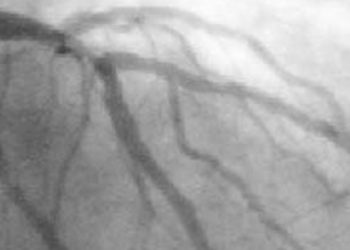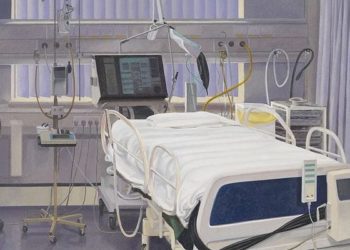Chemokines in cardiac allografts promote graft rejection in mice
1. Cardiac allografts without the CCL2 chemokine demonstrated increased graft survival time when compared with wild type (WT) allografts in a mouse model of antibody-mediated rejection (AMR).
2. Markers of AMR including infiltration of classically activated host macrophages, donor-reactive antibody response, and intragraft inflammatory chemokine and cytokine expression were decreased in the CCL2negative (-/-) allograft mice.
Evidence Rating Level: 2 (Good)
Study Rundown: The host immune response that drives rejection of a transplanted donor tissue is a concerted effort of both cell and antibody-mediated processes. While studies have begun to investigate the function of particular immune cells in the cellular rejection of grafts, few have explored the role of these cells in antibody-mediated rejection (AMR). Employing a mouse model of AMR that reduces T cell activity, researchers have now investigated the role of CCL2 (or MCP-1), a known macrophage chemoattractant, in cardiac allograft rejection. They found that, while both graft types failed, CCL2(-/-) allografts experienced longer survival times than wild type (WT) allografts in the model of AMR. No survival difference was found in the cellular-rejection model, in which host T cell activity was not hindered. At the time of WT graft rejection, mice with CCL2(-/-) grafts exhibited reduced levels of multiple markers of AMR, including host immune cell infiltration into the graft, donor-reactive antibody responses and intragraft expression of inflammatory-associated chemokines and cytokines such as TNFα and IL-1β. Interestingly, at the time of CCL2(-/-) graft failure many of the reduced AMR markers had increased to the levels of WT at failure. Studies have suggested that transplant rejection may be governed by different responses in humans and mice. Consequently, the results of this study must be confirmed in human studies.
Click to read the study in American Journal of Transplantation
Relevant Reading: Macrophages Contribute to Cellular But Not Humoral Mechanisms of Acute Rejection in Rat Renal Allografts
In-Depth [animal study]: This study employed B6.CCR5-/-/CD8-/- mice as cardiac allograft recipients to model AMR. As a comparative model of cellular-mediated rejection (CMR), WT C57BL/6 recipient mice were used. Cardiac allografts were harvested from WT A/J or CCL2-deficient A/J donors and grafted to host mice by heterotopic intra-abdominal cardiac transplantation. Grafts not included in survival analysis were removed at day 7 post transplantation and analyzed via flow cytometry for infiltrating neutrophils, macrophages, dendritic cells and T cells as well as donor-specific antibodies. RNA purification and reverse transcription polymerase chain reaction were use to evaluate macrophage activation phenotype. Kaplan-Meier analysis was used to predict survival events and log-rank testing was used for comparisons. Significance (p < 0.01) was determined by Mann-Whitney nonparametric testing. Allograft median survival time (MST) in the AMR model was significantly improved in CCL2(-/-) grafts (MST: Day 10) when compared to WT grafts (MST: Day 8). No significant difference in mean survival was found between graft types in the CMR model. CCL2(-/-)graft recipients demonstrated lower numbers of infiltrating classically activated macrophages, neutrophils, and CD4 T cells at day 7. Donor-specific antibodies and intragraft expression of TNFα and IL-1β were decreased in CCL2(-/-) grafts at day 7 in the AMR model, though this significant reduction was lost by time of CCL2(-/-) graft failure.
More from this author: Modulating lymphocyte populations decreases graft rejection in mice,Adding Evolocumab to statin therapy further decreases LDL-C levels,Genetic variant linked to poor patient survival following lung transplantation, Genetic variations may predict outcomes for colorectal cancer patients, Neuroendocrine tumor marker pancreastatin may be predictive of survival
2012-2014 2minutemedicine.com. All rights reserved. No works may be reproduced without expressed written consent from 2minutemedicine.com. Disclaimer: We present factual information directly from peer reviewed medical journals. No post should be construed as medical advice and is not intended as such by the authors, editors, staff or by 2minutemedicine.com. PLEASE SEE A HEALTHCARE PROVIDER IN YOUR AREA IF YOU SEEK MEDICAL ADVICE OF ANY SORT.
[cite source=’doi’]10.1021/jf904082b[/cite]







